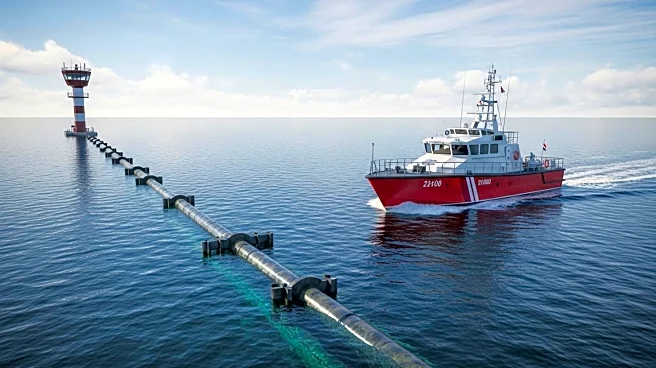What's Happening?
Polish border guards have reported observing a Russian fishing boat behaving suspiciously near a gas pipeline in the waters off Wladyslawowo, Poland. This incident has raised concerns about potential sabotage operations in the Baltic Sea. In response to these security concerns, Polish pipeline operator PERN is set to sign a preliminary agreement with a unit of Poland's defense ministry to extend the country's fuel pipelines to connect with the NATO system. This move is part of broader efforts to enhance Poland's energy security and align its infrastructure with NATO standards. Additionally, Polish Foreign Minister Radoslaw Sikorski has stated that while Poland is not considering a complete severance of diplomatic relations with Russia, the country must be prepared to face information and hybrid attacks.
Why It's Important?
The reported suspicious activity by a Russian vessel near critical infrastructure highlights ongoing tensions in the Baltic region, where concerns about Russian aggression and hybrid warfare tactics persist. The integration of Poland's fuel pipelines with NATO's system represents a strategic move to bolster energy security and military readiness in the face of potential threats. This development underscores the importance of regional cooperation and infrastructure resilience in maintaining stability and security in Eastern Europe. The situation also reflects broader geopolitical dynamics, where NATO member states are increasingly vigilant about protecting their territories and assets from potential Russian incursions.
What's Next?
The signing of the preliminary agreement between PERN and Poland's defense ministry is expected to proceed, further integrating Poland's infrastructure with NATO's systems. This move may prompt reactions from Russia, potentially escalating diplomatic tensions. Additionally, Poland and other NATO members may continue to enhance their surveillance and defense capabilities in the Baltic Sea to deter any future threats. The situation will likely be closely monitored by international observers, as it could have implications for regional security and NATO-Russia relations.








